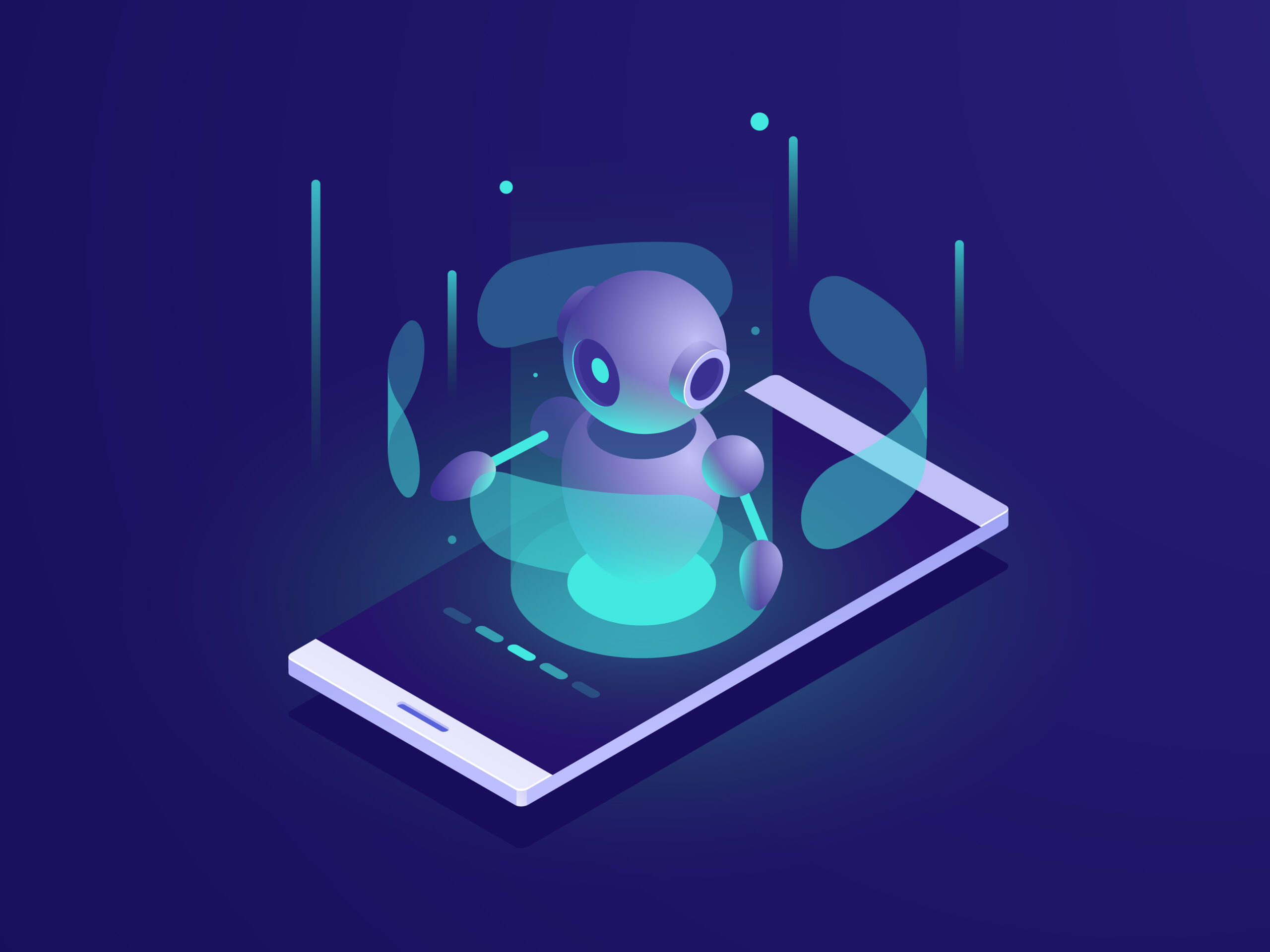In today’s landscape, chatbots and intelligent agents are powerful tools in business process automation, especially in areas such as debt recovery. Although both use artificial intelligence (AI) and conversational intelligence, their capabilities and applications differ.
Find out more in the Use Case: Maximizing Debt Recovery
Chatbots vs Intelligent Agents: What are they and what are their differences?
| Features | Chatbots | Intelligent Agent |
|---|---|---|
| Main Objective | Manage simple and repetitive interactions, such as frequent inquiries or payment reminders. | Adapt and resolve complex interactions, customizing responses and solutions. |
| Technology | Based on predefined rules and algorithms, with natural language processing (NLP). | Use machine learning and adaptive intelligence to improve response accuracy. |
| Learning capacity | Limited, as they follow predefined scripts with no capacity to learn from interactions. | High capacity for learning and continuous improvement from interactions. |
| Customization | Standard answers are based on simple questions or commands. | Highly personalized answers, adapted to the customer’s information and emotions. |
| Complexity of interactions | Suitable for simple tasks. | Able to manage complex interactions and adapt to new situations. |
| Use of data | Relies on basic data for standard responses. | Uses historical, contextual, and emotional data for a tailored solution. |
| Empathy | Limited ability to respond empathetically or emotionally. | Can detect the client’s tone and emotions, adapting their response accordingly. |
Benefits of Chatbots and Intelligent Agents
Chatbots:
- Efficiency and Scalability: chatbots are ideal for handling repetitive tasks and simple queries. Their ability to handle multiple simultaneous interactions allows companies to scale quickly without increasing staff.
- Reduced Operating Costs: By automating routine interactions, companies can significantly reduce staffing costs. Chatbots also operate 24/7, which optimizes availability at no additional cost.
- Fast Interactions: Chatbots are effective at tasks such as verifying debts or delivering payment reminders, facilitating immediate responses, and quick processes for customers with simple questions.
Intelligent Agents:
- Advanced Personalization: Unlike chatbots, intelligent agents can offer personalized solutions. These agents can analyze historical and emotional customer data to offer tailored payment options.
- Empathy and Adaptability: Intelligent agents can detect and respond to the emotional tone of customers, adapting their language and tone to provide a more human and sympathetic experience.
- More Effective Collection Strategies: Thanks to their ability to learn and adjust their responses over time, intelligent agents can offer personalized payment strategies, such as flexible payment plans, increasing the likelihood of debt recovery.
Challenges of Chatbots and Intelligent Agents
Chatbots:
- Limitation in handling complex interactions: Chatbots are excellent at simple tasks, but have difficulty handling complex interactions that require more detailed decisions or responses.
- Lack of empathy: Although chatbots can provide quick and effective responses, their lack of emotional understanding can be a hindrance, especially in sensitive situations such as debt collection.
- Reliance on predefined scripts: Chatbots follow fixed scripts, which can result in an impersonal experience and generate frustration when the customer raises an unanticipated situation.
Intelligent Agents:
- Increased complexity in implementation: Developing and deploying intelligent agents requires significant investment in time, resources, and AI training, making it a more time-consuming and costly process.
- Need for accurate and quality data: For intelligent agents to be effective, they need up-to-date, high-quality data. Lack of this data can affect the effectiveness of the solutions they provide.
- Potential learning failures: Although intelligent agents learn from interactions, if the data is not correct or the AI is not well trained, they can make mistakes in responses or decision-making.
Which one should you choose?
The choice between a chatbot and an intelligent agent will depend on the specific needs of your business and the type of interactions you want to automate. If your goal is to handle large volumes of simple interactions quickly and cost-effectively, chatbots are the ideal choice. They are perfect for repetitive tasks, such as remembering payments, providing basic information, or handling standard queries.
However, if you are looking for a more personalized and adaptive experience, especially in complex or sensitive situations, such as debt recovery with customers with different emotions and behaviors, intelligent agents will be the more suitable option. Although they are more costly and time-consuming to implement, their ability to learn, adapt, and deliver customized solutions to each customer makes their return on investment considerably higher in the long run.
In many cases, a combination of both tools can be most effective: using chatbots for simple tasks and intelligent agents to handle more complex cases.
Find out more about debt recovery and the role of AI in early debt optimization by clicking here.

